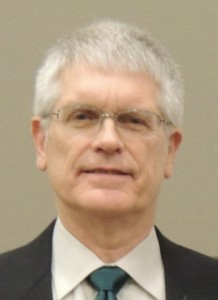 For Grow Greene County Gaming Corporation and Tom Timmons, president and chief operating officer of Wild Rose Entertainment, being second in line is an advantage.
For Grow Greene County Gaming Corporation and Tom Timmons, president and chief operating officer of Wild Rose Entertainment, being second in line is an advantage.
Grow Greene County and Wild Rose Entertainment are seeking a gaming license from the Iowa Racing and Gaming Commission (IRGC) for a Greene County casino. They’re working two months behind a group trying to get a license for Cedar Crossing Casino in Cedar Rapids. That gives Timmons a chance to watch and learn.

Timmons and some Grow Greene County members were at Cedar Crossing’s presentation to the IRGC in Waterloo Jan. 19, and Timmons plans to be in Cedar Rapids next Thursday for the site visit. “I’m going to go over there and see what they do,” Timmons said during an interview at his West Des Moines office last week. “We had the advantage of going over to Waterloo and watching their (Cedar Crossing) presentation, and they did a good job. After watching theirs, that helped us in some aspects in knowing what we wanted to do and what we didn’t want to do in our presentation.”
The Grow Greene County/Wild Rose presentation for the IRGC was March 6 at the commission’s meeting at Prairie Meadows in Altoona. Timmons said he thought the 55-minute presentation, which included a slide presentation, speakers, and seven video clips featuring Greene County residents, went well. “They were truly engaged… They weren’t looking at their watches. They were watching the monitor in front of them, and they were engaged. I’ve never seen them sit that long and look and be that intent listening for almost 55 minutes,” Timmons said.
Timmons said he felt momentum moving toward a Greene County casino after the presentation. “I wish we could play off that momentum and have the (IRGC) vote right away,” he said.
The Greene County site visit is planned for May 29. It will include a tour of Jefferson, a look at the proposed site at the northwest corner of the intersection of Highways 4 and 30, and a public hearing that afternoon at the Sierra Community Theatre. There will be plenty of opportunity for residents to express their views, both in favor and against the proposed casino. Watch GreeneCountyNewsOnline for more information about the site visit.
Before that, Timmons will tag along on the Cedar Rapids site visit. “I’ll take notes at the site visit and see. We have an idea what we want to do, but we’ll see how theirs goes and see how the commission reacts,” he said.
The Grow Greene County presentation at Prairie Meadows was preceded by presentations by Marquette Advisors of Minneapolis and Union Gaming of Las Vegas of studies they had done for the IRGC about the markets for further casinos in Iowa. Both studies recommended the commission not grant new licenses but work to assure the viability of existing casinos.
The studies were released just days before the March 6 presentation. Timmons said two weeks later that his first impressions of the studies hold true.
The Marquette study named three casinos –Wild Rose-Emmetsburg, Meskwaki, and Prairie Meadows – that would feel the greatest impact of a Greene County casino. Timmons said he doubts figures from Meskwaki, which is a Native American casino. “They’ve never been forthright in providing numbers before,” he said. The study shows $4.5 million of revenue from a Greene County casino would come from Meskwaki. “That would be new money to the state because there’s no gaming tax paid on the money now,” he said.
He said the projected impact on Prairie Meadows represents only 3 percent of that casino’s revenues.
Timmons takes issue with the Marquette study for listing only three casinos specifically. The study left 18 casinos not specifically named and provided a figure of $8.3 million in impact to those casinos. “The significance of the $8.3 million is the lack of significance. It doesn’t affect any one of those 18 by more than 3 percent or they (Marquette) would have listed them,” Timmons said. “According to their numbers, it wasn’t significant enough to list any one casino. The Greene County casino does not affect any one operation in the state with any significance.”
He said that hearing both consultants talked about “perfect data” was “nails on a blackboard.” “There are a lot of ways to do a study, but I’ve never heard anyone say they have ‘perfect data.’ There is no such thing in my mind. I’m not sure of the definition of ‘perfect data.’ I don’t think it exists,” he said.
The data used in the study was drawn from the zip codes listed on player cards, a sort of registration that people who are frequent players at a casino hold. Only about 60 percent of casino gamblers have player cards. Timmons questioned how data can be “perfect” if it’s based on only 60 percent of the total group.
Timmons said that while Marquette Advisors has done other similar studies, Union Gaming does not typically do that kind of work. The consultants at Union Gaming are former operating officers of casinos and the majority of their work is done for casinos.
According to Timmons, Union Gaming was hired to do the study because the IRGC needed to different studies, and Marquette was the only other viable bidder for the contract. The IRGC paid Marquette Advisors $65,000 and Union Gaming $95,000 for the studies.
